Since 1975, we’ve supported outstanding diabetes research in Canada and provided more than $160 million in research grants, awards and partnerships to scientists across the country.
Since the discovery of insulin in Toronto in 1921, Canadian researchers have made huge strides and key advances in understanding diabetes. This is why, each year, we choose to fund Canada’s most renowned researchers in their quest for new and innovative developments in the prevention, treatment, management and cure for diabetes. The research is diverse in scope, covering a broad range of specialties and topics, and the underlying goal of each study remains the same—to create a world free of the effects of diabetes.
Every year, our researchers continue a tradition of innovation and discovery. Meet the researchers we are currently funding.
Causes Screening Complications Prevention Treatment Cure
2023 End Diabetes Award Winners
Causes

Dr. Christine Doucette
University of Manitoba, Man. | Title: Can we improve the metabolic health of the next generation by restoring circadian rhythms? | Research area: Gestational diabetes | Award: End Diabetes Award, 2022-2024
Dr. Doucette’s research goal is to provide valuable information about how gestational diabetes mellitus exposure increases susceptibility to type 2 diabetes in children, and how this can be stopped.

Dr. Kathy McCoy
University of Calgary, Alta. | Title: Protecting children from type 1 diabetes by harnessing the microbiota of the mom and the Infant | Research area: Type 1 diabetes | Award: End Diabetes Award, 2022-2024
Dr. McCoy is studying how microbes shape type 1 diabetes development, to protect children from type 1 diabetes by harnessing the microbiota of the mom and the infant.

Dr. Vincent Poitout
Centre de recherche du CHUM, Que. | Title: How the cells that make insulin adapt to puberty | Research area: Type 2 diabetes | Award: End Diabetes Award, 2022-2024
Dr. Poitout is studying how the cells that make insulin adapt to puberty, which will help devise strategies to curb the increase in type 2 diabetes in young adults.
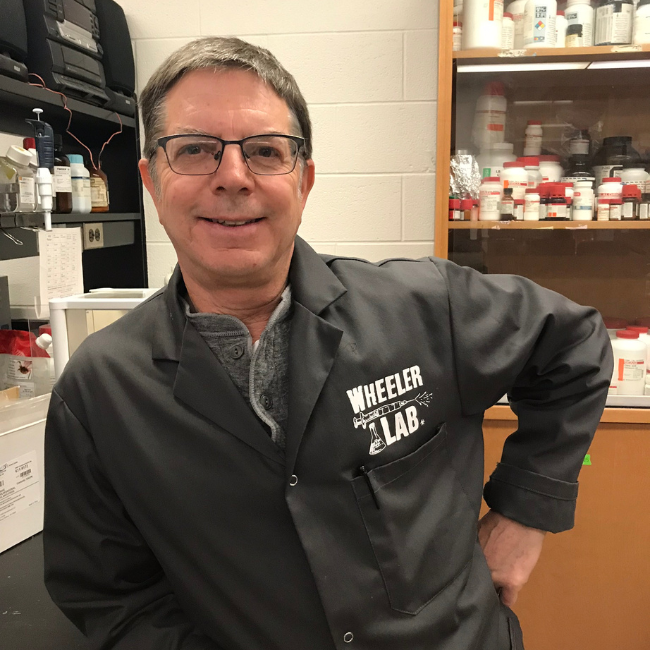
Dr. Michael Wheeler
University of Toronto, Ont. | Title: The discovery of a more accurate means to predict future type 2 diabetes: preventing the onset and consequences of diabetes | Research area: Type 2 diabetes | Award: End Diabetes Award, 2022-2024
Dr. Wheeler’s research goal is to improve methods to accurately assess the risk of developing gestational diabetes mellitus and later in life, type 2 diabetes.

Dr. Brandy Wicklow
University of Manitoba, Man. | Title: The developmental origins of pediatric type 2 diabetes and early renal dysfunction | Research area: Type 2 diabetes | Award: CIHR Team Grant: Diabetes Mechanisms and Translational Solutions for 100 Years of Insulin, 2022-2027
Dr. Wicklow is studying the developmental origins of pediatric type 2 diabetes to identify markers at birth that identify which children are at highest risk of developing type 2 diabetes.

Dr. Jennifer Bruin
Carleton University, ON. | Title: Impact of an anti-cancer drug on insulin secretion | Research area: Type 2 diabetes | Award: End Diabetes Award, 2023-2025
Dr. Bruin is investigating whether cisplatin, a medication commonly used to treat different cancers, has unintended side effects on pancreatic beta cells, leading to increased diabetes risk in cancer survivors.
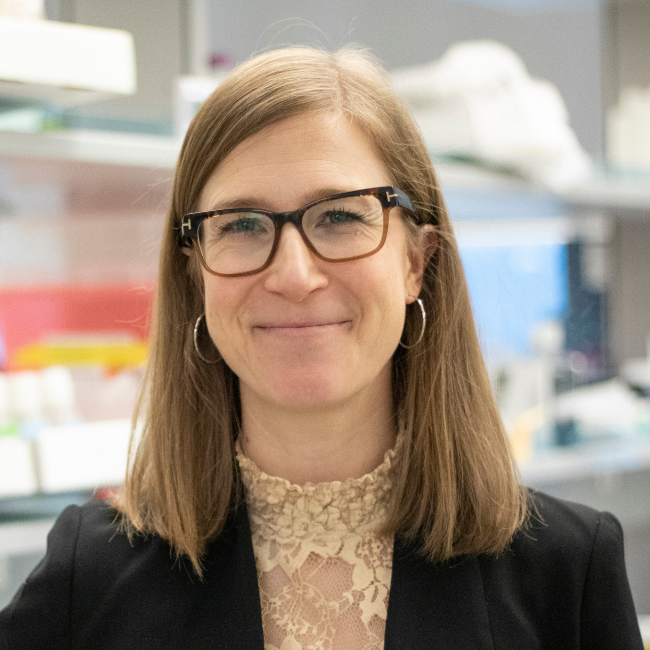
Dr. Elizabeth Rideout
University of British Columbia, BC. | Title: Understanding female beta cell resilience during stress | Research area: Type 2 diabetes | Award: End Diabetes Award, 2023-2025
Dr. Rideout’s research is increasing our understanding of why women are protected from diabetes more so than men. With more clues into how female beta cells respond to stress, scientists can develop better treatments to relieve beta cell stress, improve insulin production, and better manage diabetes in both women and men.

Dr. Francis Lynn
University of British Columbia, BC. | Title: SOX4 regulation of beta cell genesis and function | Research area: Type 2 diabetes | Award: End Diabetes Award, 2024-2026
Dr. Lynn is using cutting-edge technologies to create human stem cells that carry the genetic differences predisposing people to type 2 diabetes, to study how these differences cause insulin resistance and diabetes, and uncover new ways to treat and prevent the disease.
Screening

Dr. Jennifer Yamamoto
University of Manitoba, Man. | Title: Can continuous glucose monitors improve postpartum screening for diabetes? | Research area: Gestational diabetes | Award: End Diabetes Award, 2022-2024
Dr. Yamamoto is exploring whether continuous glucose monitors can be used in people with gestational diabetes mellitus after delivery to predict their risk of diabetes.
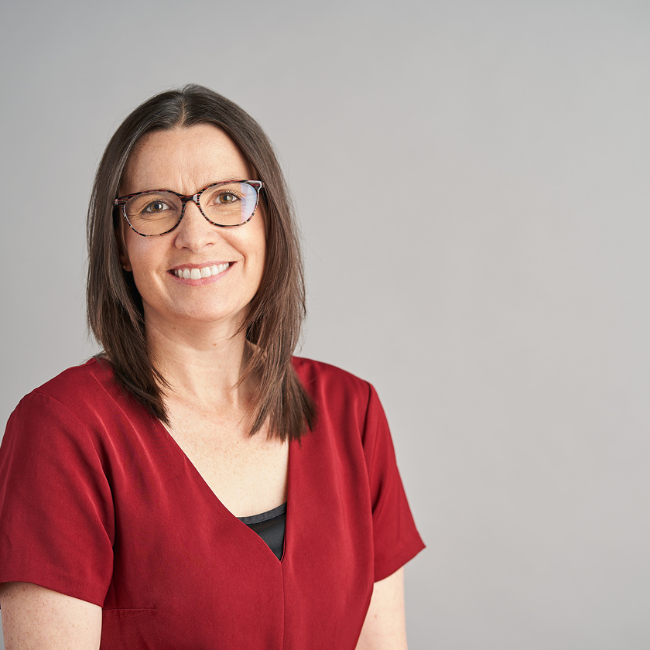
Dr. Jennifer Estall
Clinical Research Institute of Montreal (IRCM), QC. | Title: How a gene influences risk of diabetes and response to treatment | Research area: Type 2 diabetes | Award: End Diabetes Award, 2023-2025
Not much is known about how PGC-1A mutation affects the function of PGC-1A, or why it is linked to diabetes. Dr. Estall will determine how this mutation changes how the protein works, by investigating how different forms of PGC-1A affects how the body burns and stores food energy and the body’s response to exercise, diet, and common treatments for diabetes. Not much is known about how PGC-1A mutation affects the function of PGC-1A, or why it is linked to diabetes. Dr. Estall will determine how this mutation changes how the protein works, by investigating how different forms of PGC-1A affects how the body burns and stores food energy and the body’s response to exercise, diet, and common treatments for diabetes.
Complications

Dr. Sylvain Iceta
Université Laval, Que. | Title: Do “sugar swings” impact the brain software of people with type 1 diabetes? | Research area: Type 1 diabetes | Award: End Diabetes Award, 2022-2024
Dr. Iceta is studying the impact of blood sugar changes on the brain and eating behaviours in people with type 1 diabetes, which may result in improved early detection and management of these issues.

Dr. Saija Kontulainen
University of Saskatchewan, Sask. | Title: Bone strength development in girls and boys with type 1 diabetes study (BSDS) | Research area: Type 1 diabetes | Award: End Diabetes Award, 2022-2024
Dr. Kontulainen's study will guide interventions designed to optimize bone strength development and the prevention of bone fragility and fractures in individuals with type 1 diabetes.

Dr. Bruce Perkins
Lunenfeld-Tanenbaum Research Institute at Sinai Health, Ont. | Title: Working to finally end diabetic ketoacidosis in type 1 diabetes: an education tool combining data and lived experience | Research area: Type 1 diabetes | Award: End Diabetes Award, 2022-2024
Dr. Perkins’ research will help to better understand risk factors and components of effective education and prevention tools to end diabetic ketoacidosis in type 1 diabetes.

Dr. Rémi Rabasa-Lhoret
Clinical Research Institute of Montréal, Que. | Title: Prevention of exercise-induced hypoglycemia with the artificial pancreas | Research area: Type 1 diabetes | Award: End Diabetes Award, 2022-2024
Dr. Rabasa-Lhoret is exploring the prevention of exercise-induced hypoglycemia with the artificial pancreas, which has the potential to reduce barriers to physical activity and improve the quality of life for people living with type 1 diabetes.

Dr. Valeria Rac
University Health Network, Ont. | Title: Preventing vision loss from diabetic retinopathy: guiding primary care diabetic retinopathy screening in Canada through the use of provincial healthcare administrative data | Research area: Type 1 and Type 2 diabetes | Award: CIHR Team Grant, Diabetes Mechanisms and Translational Solutions for 100 Years of Insulin, 2022-2027
Dr. Rac’s research, which focuses on preventing vision loss from diabetic retinopathy, uses provincial healthcare data to identify unmet care needs (according to clinical practice guidelines), as a crucial step in creating a Canadian diabetic retinopathy screening program.

Dr. Brian Rodrigues
University of British Columbia, B.C. | Title: VEGFB and its heart-protective role during diabetes | Research area: Type 1 and Type 2 diabetes | Award: End Diabetes Award, 2022-2024
Dr. Rodrigues is studying whether the protein VEGFB is protective against the development of heart complications, and whether this may be promising for treating people with diabetes who are at risk of developing heart disease.

Dr. Sonia Butalia
University of Calgary. AB | Title: Understanding the Barriers to and Facilitators of Uptake of Medications in People Living with Diabetes | Research area: Type 2 diabetes | Award: End Diabetes Award, 2023-2025
Dr. Butalia’s research looks to gain a better understanding of why a medication that is highly effective at reducing heart failure is not being commonly prescribed. She and her team will speak with people living with diabetes as well as doctors, and look at anonymous prescribing information. This information will help reduce barriers to care for different groups and improve equitable approaches to medication use.

Dr. Jason Dyck
University of Alberta, AB | Title: Understanding How Diabetes Causes Poor Heart Function | Research area: Type 2 diabetes | Award: End Diabetes Award, 2023-2025
Dr. Dyck’s aim for his project is to better understand what causes poor heart function during the development of type 2 diabetes with the ultimate goal of discovering ways to slow or prevent this complication.
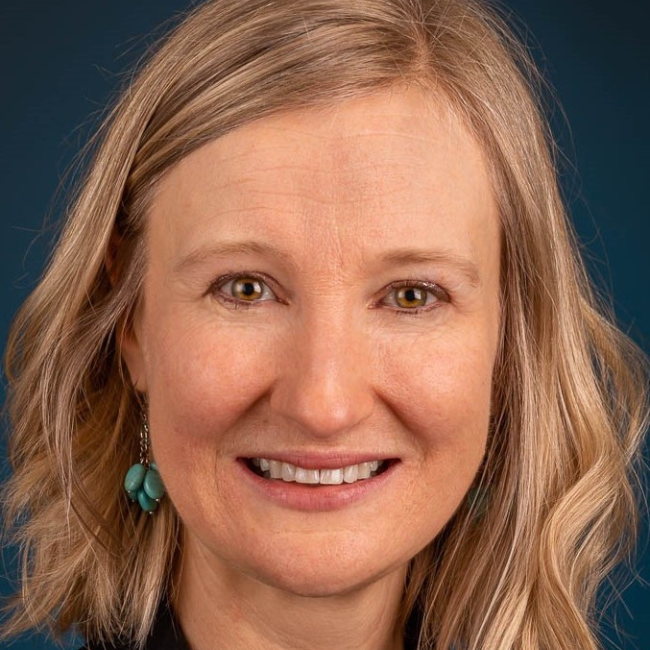
Dr. Claudia Gagnon
Universite Laval, QC | Title: Bone health and glycemic control in type 1 diabetes | Research area: Type 1 diabetes | Award: End Diabetes Award, 2023-2025
Dr. Gagnon is working on improving our understanding of the mechanisms behind type 1 diabetes bone fragility, to inform better prevention strategies and treatments.

Dr. Herbert Gaisano
University of Toronto, ON | Title: Using human fatty livers as the preclinical model to test new drugs for fatty liver disease | Research area: Type 2 diabetes | Award: End Diabetes Award, 2023-2025
Dr. Gaisono has developed a unique technology platform that he will use to test new drug treatments for fatty liver disease. By using liver samples taken from people with fatty liver disease, he can create a preclinical model to conduct these tests and determine if drugs currently used to treat type 2 diabetes can also be used to treat fatty liver disease.

Dr. Kyoung Han Kim
University of Ottawa Heart Institute, ON | Title: Understanding the metabolic mechanism of a new class of diabetic drug against fatty liver disease | Research area: Type 2 diabetes | Award: End Diabetes Award, 2023-2025
Dr. Kyoung Han Kim’s goal is to understand how SGLT2 inhibitors work to improve fatty liver disease. Fatty liver disease is the most common complication of type 2 diabetes, affecting 1 in 5 Canadians. If not managed or treated, people with fatty liver disease may develop irreversible liver failure. This research aims to improve the care of patients living with type 2 diabetes and fatty liver disease.

Dr. John Edward Ussher
University of Alberta, AB | Title: The Diabetic Heart and Malfunctioning Metabolism | Research area: Type 2 diabetes | Award: End Diabetes Award, 2023-2025
Dr. Ussher is learning how diabetes impacts the heart’s ability to function, with the aim of developing new drugs to treat diabetic heart disease.

Dr. Jane Yardley
Clinical Research Institute of Montreal (IRCM), QC | Title: Effects of aerobic exercise and weight lifting on blood glucose levels in post-menopausal women with type 1 diabetes | Research area: Type 1 | Award: End Diabetes Award, 2023-2025
Dr. Yardley is working to improve advice and treatment for menopausal women with type 1 diabetes. She will study how aerobic exercise and weight lifting affect blood sugar levels during and after exercise in 20 women with type 1 diabetes who have been through menopause.
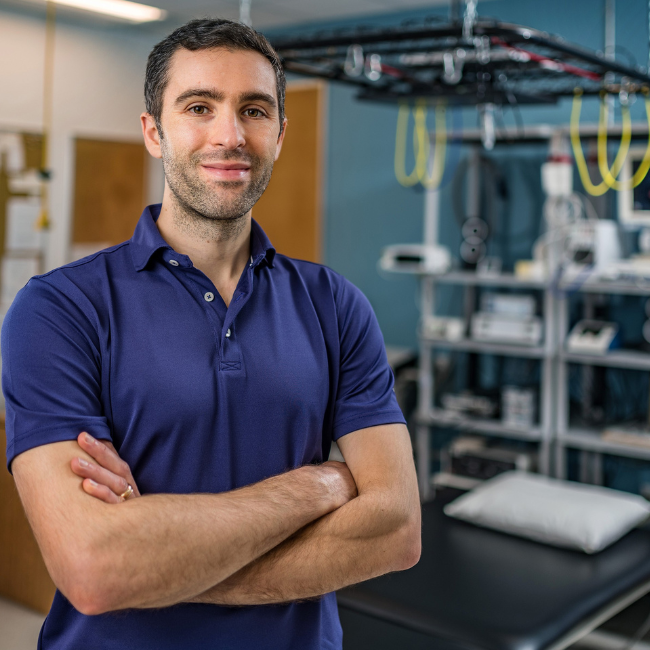
Dr. Daniel Gagnon
Montreal Heart Institute, QC | Title: Home-based heat therapy to improve cardiometabolic function of adults with type 2 diabetes | Research area: Type 2 diabetes | Award: End Diabetes Award, 2024-2026
Dr. Gagnon is studying the beneficial effects of heat exposure for people living with type 2 diabetes.
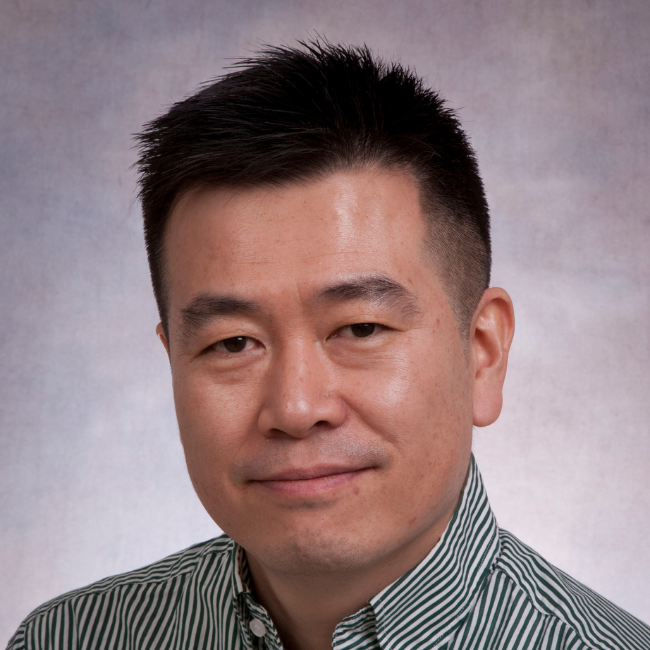
Dr. Hoon-Ki Sung
Research Institute for Sick Children, ON | Title: Mechanisms of sustained metabolic benefits of intermittent fasting | Research area: Type 2 diabetes | Award: End Diabetes Award, 2024-2026
Dr. Sung is studying how intermittent fasting helps improve liver health.
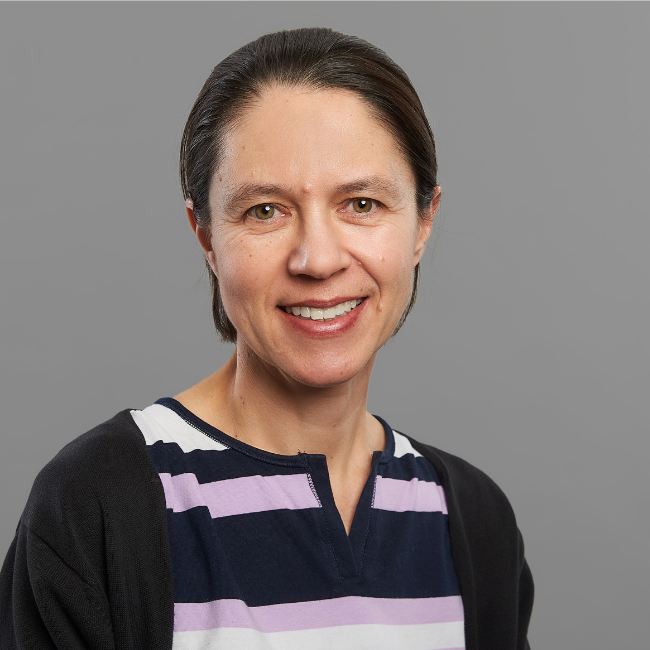
Dr. Joan Krepinsky
McMaster University, ON | Title: Is the protein GRP78 important to diabetic kidney disease? | Research area: Type 1 and Type 2 diabetes | Award: End Diabetes Award, 2024-2026
Dr. Krepinsky and her team are examining if blocking the interaction between GRP78 and a2M can help slow or improve diabetic kidney disease. They are also learning how GRP78 and integrin beta 1 work together..

Dr. Joseph Gordon
University of Manitoba, MB | Title: Changes to muscle structure and function during type 2 diabetes | Research area: Type 2 diabetes | Award: End Diabetes Award, 2024-2026
Dr. Gordon is building our understanding of how muscle structure and metabolism change with type 2 diabetes. He and his lab are testing whether a protein found in muscle cells called Nix can protect against insulin resistance, and the changes that happen when diabetes develops.
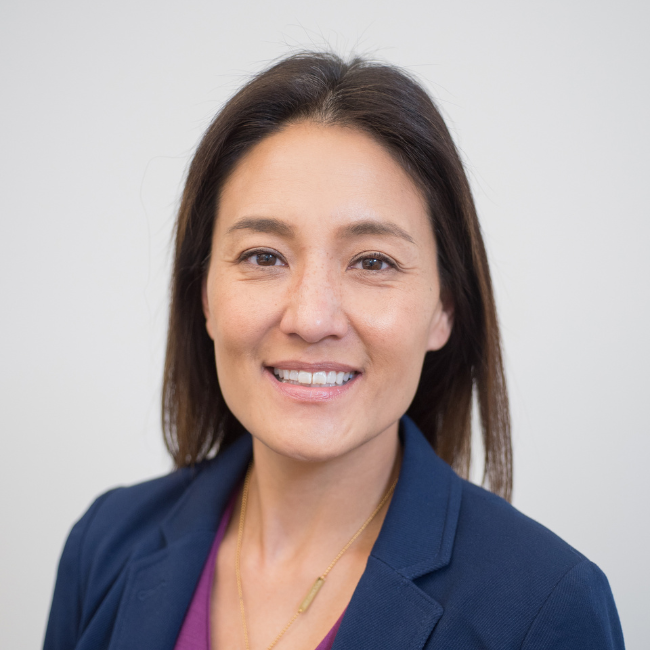
Dr. Kristin Clemens
Lawson Health Research Institute, ON | Title: Weight management for kidney transplantation in type 2 diabetes | Research area: Type 2 diabetes | Award: End Diabetes Award, 2024-2026
Dr. Clemens and her team are beginning a clinical trial to study the effectiveness of a weight management program for people living with diabetes, obesity and kidney disease.

Dr. Nicole Woods
University Health Network, ON | Title: Best Foot Forward: Foot screening to avoid limb loss | Research area: Type 1 and Type 2 diabetes | Award: End Diabetes Award, 2024-2026
Dr. Woods and her team are improving the prevention and early treatment of diabetes related foot wounds for structurally disadvantaged Ontarians living with diabetes, which can lead to loss of lower limbs and early death.
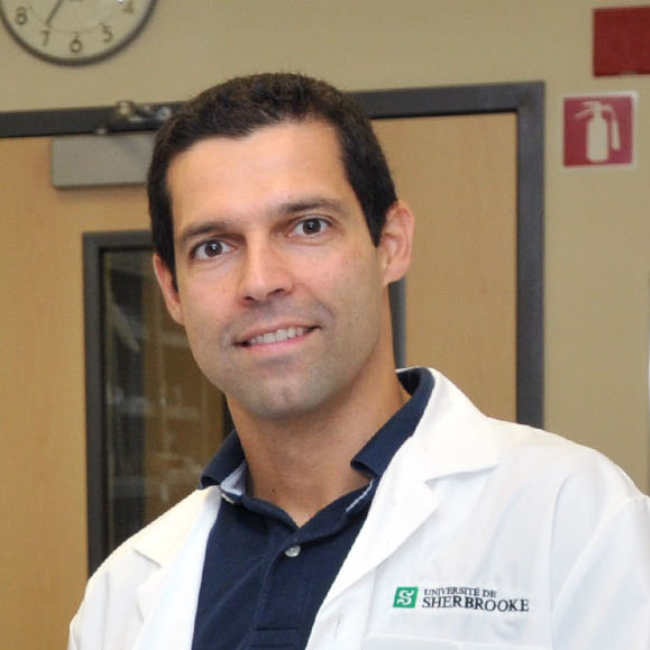
Dr. Pedro Geraldes
Universite de Sherbrooke, QC | Title: Inflammation, fibrosis and diabetic kidney disease | Research area: Type 1 and Type 2 diabetes | Award: End Diabetes Award, 2024-2026
Dr. Geraldes is helping develop new treatments to prevent kidney failure in people with diabetes.

Dr. Thomas Pulinilkunnil
Dalhousie University, NS | Title: Correcting metabolic imbalance to treat heart disease during obesity and diabetes | Research area: Type 2 diabetes | Award: End Diabetes Award, 2024-2026
Dr. Pulinilkunnil is determining whether a protein called TFEB may help maintain heart health. TFEB works by clearing heart cells of cellular “garbage.” In people with type 2 diabetes and obesity, TFEB stops working in the heart, resulting in heart stress, damage, and cellular death.
Prevention/Reducing the Risk

Dr. Mary Jung
University of British Columbia, B.C. | Title: Addressing the health needs of rural communities: measuring the implementation and impact of an evidence-based diabetes prevention program adapted to local contexts in Northern British Columbia | Research area: Prediabetes | Award: End Diabetes Award, 2022-2024
Dr. Jung is studying the implementation and impact of diabetes prevention programs in rural communities and measuring their meaningful healthcare impact.
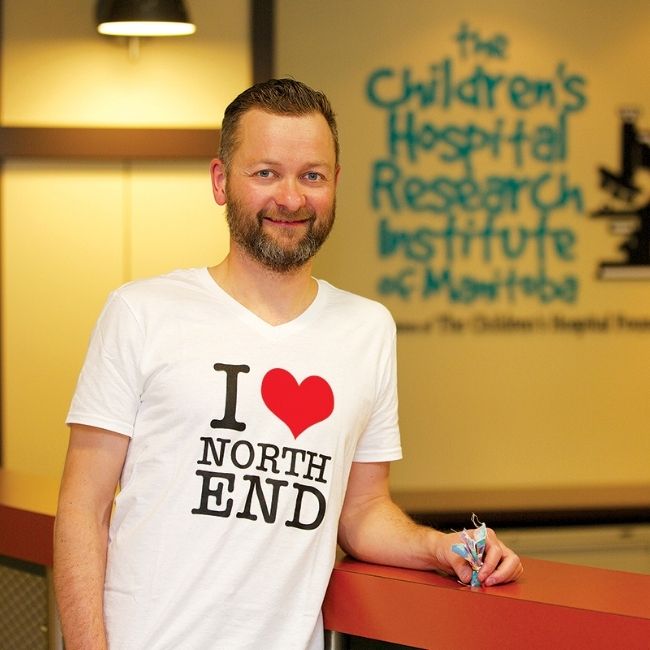
Dr. Jonathan McGavock
University of Manitoba, Man. | Title: Preventing type 2 diabetes in teens through healthy lifestyles, emotional regulation and positive mental health | Research area: Type 2 diabetes | Award: End Diabetes Award, 2022-2024
Dr. McGavock is exploring how to prevent type 2 diabetes in teens by supporting their social, emotional and psychological needs in addition to changing their lifestyle behaviours.

Dr. John Sievenpiper
University of Toronto, Ont. | Title: The role of the portfolio diet in the prevention of heart disease and diabetes: insights from clinical and population studies using markers of metabolism and genetics | Research area: Type 2 diabetes | Award: End Diabetes Award, 2022-2024
Dr. Sievenpiper is studying the role of the portfolio diet in the prevention of type 2 diabetes and its major complication, cardiovascular disease.

Dr. Shelley Spurr
University of Saskatchewan, Sask. | Title: Promoting health among Indigenous youth through wellness and HOPE | Research area: Type 2 diabetes | Award: End Diabetes Award, 2022-2024
Dr. Spurr’s research focuses on promoting health among Indigenous youth through wellness, prevention, and education that are relevant to Indigenous culture and values, and the needs of First Nation and Métis youth.

Dr. Anthony Hanley
University of Toronto, ON | Title: Impact of the COVID-19 Pandemic on Longitudinal Trajectories of Insulin Resistance and Beta-cell Dysfunction in Individuals at High-Risk for Type 2 Diabetes | Research area: Type 2 diabetes | Award: End Diabetes Award, 2023-2025
Dr. Hanley is studying whether the impacts of the COVID-19 pandemic might increase people’s risk of being diagnosed with this disease. Findings from this work will improve our understanding of the COVID 19 pandemic’s impacts on diabetes risk, and may help identify new targets for early risk prevention of type 2 diabetes.

Dr. Carol Huang
University of Calgary. AB | Title: Understanding the role of prolactin receptor as a risk factor for developing gestational diabetes and type 2 diabetes | Research area: Type 2 diabetes | Award: End Diabetes Award, 2023-2025
Dr. Carol Huang is developing a better understanding of what causes gestational diabetes, and what factors hasten progression from gestational to type 2 diabetes. Her research study’s aim is to help us design strategies to delay and prevent this progression.

Dr. Amy Kirkham
University of Toronto, ON | Title: The effect of the time of day of intermittent fasting on blood sugar control in men and women with obesity who do and do not have diabetes | Research area: Type 2 diabetes | Award: End Diabetes Award, 2023-2025
Dr. Kirkham’s research looks to determine which intermittent fasting period best impacts blood sugar control. These study results are required to determine if intermittent fasting can be used in clinical care to prevent or manage type 2 diabetes.
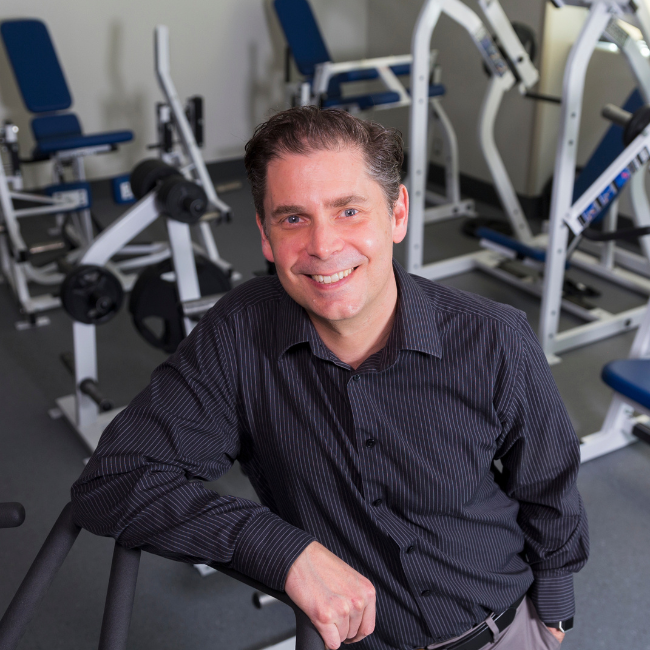
Dr. Ryan Rhodes
University of Victoria, B.C. | Title: Promoting Child Physical Activity to Prevent Type 2 Diabetes | Research area: Type 2 diabetes | Award: End Diabetes Award, 2023-2025
Dr. Rhodes is testing an innovative approach that focuses on identity formation and behavioral change, rather than traditional education and goal-setting approaches, to improve families’ physical activity levels. His interventions concentrate on encouraging family members and families to take on self- and social identities as exercisers and physically active families. This approach holds promise to create lasting child behaviour change, improved physical activity levels, and help prevent type 2 diabetes.

Dr. Jonathan Schertzer
McMaster University, ON | Title: Improving the safety and effectiveness of cholesterol drugs in people at risk for diabetes | Research area: Prediabetes | Award: End Diabetes Award, 2023-2025
Dr. Schertzer discovered that statins activate inflammation, which can be targeted without interfering with the cholesterol-lowering benefits of statins. Targeting inflammation can prevent diabetes-related side effects and enhance the lowering of cholesterol. He and his team will test if blocking certain specific causes of inflammation are the best targets to improve cholesterol-lowering and prevent diabetes related side effects.

Dr. Michaël Shum
Universite Laval. QC | Title: Mitochondria interact with lipid droplets to regulate insulin resistance | Research area: Type 2 diabetes | Award: End Diabetes Award, 2023-2025
Dr. Shum is working on restoring proper function to liver cell mitochondria, by examining the interaction between mitochondria and lipids. He and his team hope to identify new therapies to treat lipid toxicity and prevent type 2 diabetes.

Dr. Gregory Steinberg
McMaster University, ON | Title: Unraveling a new way to enhance calorie burning and lower blood sugar | Research area: Type 2 diabetes | Award: End Diabetes Award, 2023-2025
Dr. Steinberg is studying how a protein called GDF15 promotes calorie burning and lowers blood sugars. This information may lead to new ways to lower blood sugar in people with prediabetes or type 2 diabetes.
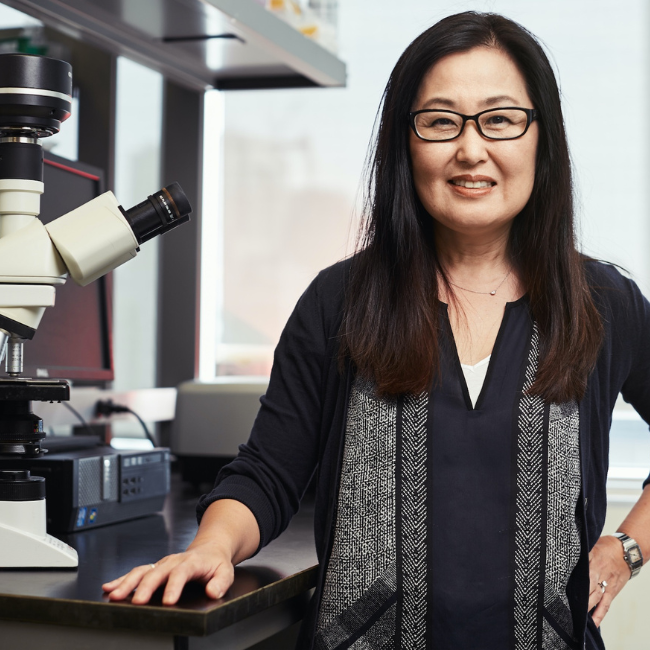
Dr. Minna Woo
University Health Network, ON | Title: Targeting the Vagus to Overcome Diabetes | Research area: Type 2 diabetes | Award: End Diabetes Award, 2023-2025
Dr. Minna Woo is examining whether manipulating the vagus nerve can prevent or treat diabetes. Currently, some conditions such as depression and epilepsy can be treated through vagus nerve stimulation. Her research will determine whether this innovative treatment can also be used to treat diabetes.
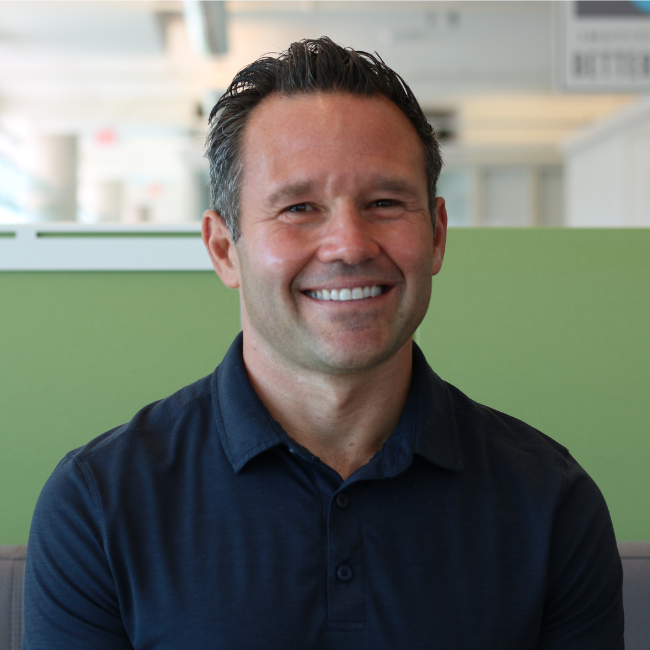
Dr. Ian Zenlea
Trillium Health Partners, ON | Title: Working together to prevent Type 2 Diabetes in Black, African, and Caribbean Communities in Peel, Ontario | Research area: Type 2 diabetes | Award: End Diabetes Award, 2024-2026
Dr. Zenlea is building on community advocacy work by mobilizing community agencies, service providers, researchers, and community caregivers. Together, the will codesign community-based type 2 diabetes prevention interventions that are family-based and culturally sensitive to Black, African and Caribbean communities.

Dr. Jennifer Thompson
University of Calgary, AB | Title: Sex-specific mechanisms in the development of type 2 diabetes | Research area: Type 2 diabetes | Award: End Diabetes Award, 2024-2026
Dr. Jennifer Thompson is building our understanding of the impact of being a woman versus being a man on a person’s risk of developing type 2 diabetes. She is exploring how estrogen influences where fat cells develop in women, and how it impacts a woman’s risk of developing diabetes throughout her lifespan.
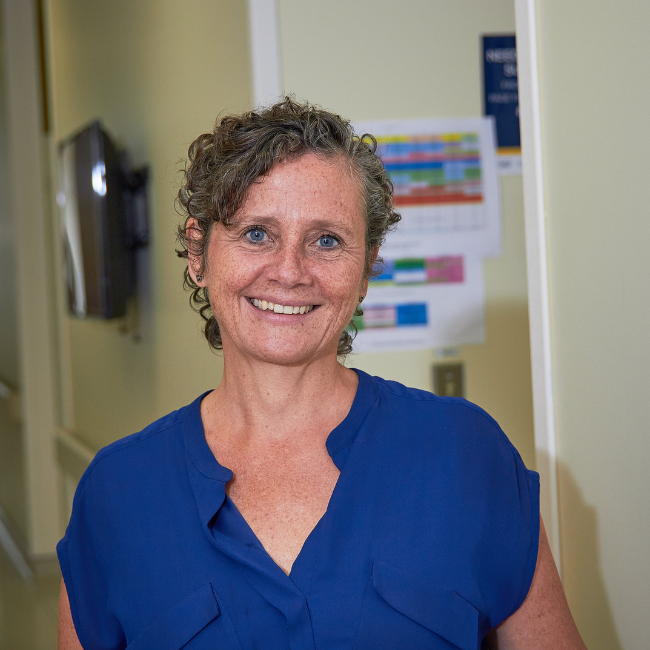
Dr. Katherine Morrison
McMaster University, ON | Title: A pilot study to measure energy expenditure in youth enrolled in weight management interventions | Research area: Type 2 diabetes | Award: End Diabetes Award, 2024-2026
Dr. Morrison is launching a pilot study to monitor energy expenditure in youth with obesity undergoing weight management interventions.

Dr. Sunita Singh
University Health Network, ON | Title: Semaglutide for the prevention of post-transplant diabetes | Research area: Type 2 diabetes | Award: End Diabetes Award, 2024-2026
Dr. Singh is investigating if semaglutide is a safe and effective option for the prevention of diabetes in kidney transplant recipients.
Treatment

Dr. Shazhan Amed
University of British Columbia, B.C. | Title: Building CAPACIty for pediatric diabetes research and quality improvement across Canada | Research area: Pediatric diabetes | Award: CIHR Team Grant, Diabetes Mechanisms and Translational Solutions for 100 Years of Insulin, 2022-2027
Dr. Amed's research addresses healthcare gaps in pediatric diabetes by studying the challenges with access to and delivery of diabetes care across Canada and developing strategies for quality improvement initiatives.

Dr. Lois Donovan
University of Calgary, Alta. | Title: Automated insulin delivery use in pregnancies of women with type 1 diabetes | Research area: Type 1 diabetes | Award: End Diabetes Award, 2022-2024
Dr. Donovan is exploring whether automated insulin delivery use in pregnant women with type 1 diabetes can improve blood glucose levels and result in fewer newborn complications and reduced diabetes self-care demands.

Dr. Mathieu Ferron
Clinical Research Institute of Montréal, Que. | Title: A hormone produced by bone to treat diabetes | Research area: Type 2 diabetes | Award: End Diabetes Award, 2022-2024
Dr. Ferron is studying whether a hormone produced within the bones may be a promising antidiabetic agent that could have a strong impact on the treatment for type 2 diabetes.
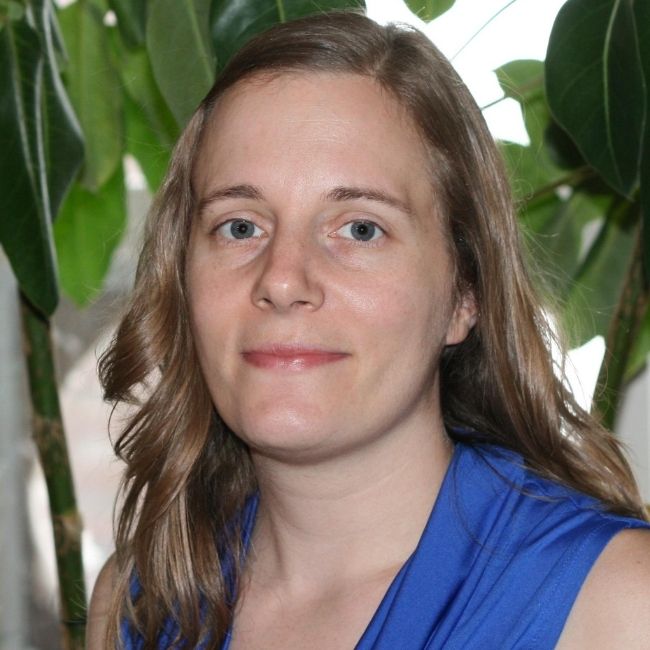
Dr. Corinne Hoesli
McGill University, Que. | Title: Engineering a new islet transplantation site to improve access to cellular therapy as a treatment option for diabetes | Research area: Type 1 diabetes | Award: End Diabetes Award, 2022-2024
Dr. Hoesli is studying improved access to cellular therapy as a treatment option for diabetes.

Dr. Erin Mulvihill
University of Ottawa Heart Institute, Ont. | Title: Exploring the effects of ketogenic diets on type 2 diabetes | Research area: Type 2 diabetes | Award: End Diabetes Award, 2022-2024
Dr. Mulvihill is exploring the short- and long-term impacts of consuming a ketogenic diet to treat type 2 diabetes.

Dr. Meranda Nakhla
McGill University, Que. | Title: Group education trial to improve transition for parents of adolescents with T1D (GET-IT for parents) | Research area: Type 1 diabetes | Award: End Diabetes Award, 2022-2024
Dr. Nakhla’s research focuses on improving the transition of diabetes care for parents of adolescents with type 1 diabetes, using patient-driven group education.

Dr. David Campbell
University of Calgary, AB | Title: Exploring Stigma: Diabetes & Homelessness | Research area: Type 2 diabetes | Award: End Diabetes Award, 2023-2025
Dr. Campbell is working to reduce inequitable health barriers for people experiencing homelessness. Using a community-based participatory research approach, where members of the community act as co-researchers. This approach empowers study participants to help find solutions to the challenges they face. In this study, people experiencing homelessness will work with Dr. Campbell and his team to codesign the study, take part in collecting and analyzing the data, and help share the results.

Dr. Dean Eurich
University of Alberta, AB | Title: Impact of COVID-19 on diabetes care for First Nations in Alberta | Research area: Type 2 diabetes | Award: End Diabetes Award, 2023-2025
Dr. Eurich is working in partnership with First Nations communities to better understand the impact of COVID-19 on diabetes care for First Nations in Alberta. With First Nations health leaders, traditional knowledge holders, and Chiefs and Council, Dr. Campbell will examine how the COVID-19 pandemic is influencing trends in diabetes and diabetes care among First Nations people in Alberta. Their findings will help inform more equitable future diabetes programming in the province post-pandemic.

Dr. Morgan Fullerton
University of Ottawa, ON | Title: Limiting cell death and inflammation to treat Type 2 Diabetes | Research area: Prediabetes | Award: End Diabetes Award, 2023-2025
Dr. Fullerton’s research has uncovered that when his team block certain beta cell processes, the cells release more insulin, which lowers blood sugar levels. By understanding how these cell processes affect insulin release, Dr. Fullerton hopes to leverage existing therapies to help combat and treat type 2 diabetes.

Dr. Ahmad Haidar
McGill University, QC | Title: A drug that removes excess sugar via urine: can it help people with type 1 diabetes struggling to reach the desired health outcomes, despite using the most advanced technology for diabetes treatment? | Research area: Type 1 diabetes | Award: End Diabetes Award, 2023-2025
Dr. Haidar’s research is testing the impact of adding a drug called empagliflozin to an automated insulin delivery system. Empagliflozin removes sugar via urine, without increasing the risk of low blood sugar levels, which can be dangerous. The study’s goal is to improve the blood sugar levels of people with type 1 diabetes who cannot otherwise achieve healthy blood sugar levels, by adding another therapy to improve the effectiveness of the artificial pancreas system.

Dr. Calvin Ke
University Health Network, ON | Title: Long-Term Impact of High Blood Sugar and Cholesterol in Young People with Diabetes | Research area: Type 2 diabetes | Award: End Diabetes Award, 2023-2025
Dr. Ke’s research examines how blood sugar and cholesterol levels in early adulthood affect the future risk of heart attack and stroke among people diagnosed with type 2 diabetes before the age of 40. His findings will provide valuable information for developing better strategies to help these people live healthier lives.

Dr. Mathieu Laplante
Universite Laval, QC | Title: A new target to treat type 2 diabetes | Research area: Type 2 diabetes | Award: End Diabetes Award, 2023-2025
Dr. Laplante and his research team are studying a protein called VSTM2A. In mice, this protein significantly improves blood sugar control. His work will reveal new biological processes that could be used to improve metabolism and blood sugar control in people with type 2 diabetes.

Dr. Jonathan Little
University of British Columbia-Okanagan, B.C. | Title: Feasibility of Exercise "Snacks" in Type 2 Diabetes | Research area: Type 2 diabetes | Award: End Diabetes Award, 2023-2025
Dr. Jonathan Little will determine if people with type 2 diabetes like doing exercise snacks, can fit exercise snacks into their daily routines, and see if exercise snacks work to improve fitness and blood sugar control. A smartphone app and web-based platform will guide participants through their exercise snack program, which they can complete in their home or workplace.

Dr. Dan Luciani
University of British Columbia, B.C. | Title: Harnessing pancreatic beta-cell garbage removal mechanisms for treatment of diabetes in both sexes | Research area: Prediabetes | Award: End Diabetes Award, 2023-2025
Dr. Luciani is building our understanding of the mechanisms of beta cell adaptation and why they fail. Stressed cells often activate a self-destructive process called autophagy, which breaks down and recycles the cell. Dr. Luciani is testing whether two proteins which help control this process can be used to prevent beta cell self-destruction.

Dr. Peter Thompson
University of Manitoba, MB | Title: Treating and tracking sick insulin-producing cells in type 1 diabetes | Research area: Type 1 diabetes | Award: End Diabetes Award, 2023-2025
Dr. Thompson and his team are studying beta cells that escape the immune system attack, but become sick and then further accelerate the development of type 1 diabetes. These studies will lay the groundwork for a new preventive therapy and improved screening of beta cell health in people with type 1 diabetes.

Dr. Alanna Weisman
Samuel Lunenfeld Res. Inst./Mount Sinai Hospital, ON | Title: Achieving Fair Access to Diabetes Technologies for all with Type 1 Diabetes | Research area: Type 1 diabetes | Award: End Diabetes Award, 2023-2025
Dr. Weisman is working to achieve fair access to diabetes technologies for all people with type 1 diabetes. Diabetes technologies such as insulin pumps and glucose monitors help people with type 1 diabetes achieve better blood sugar control and quality of life. However, despite public health funding, these devices are used less by people from historically marginalized groups, including people belonging to ethnic communities.

Dr. Alexandre Caron
Universite Laval, QC | Title: Expanding the drug toolbox for type 2 diabetes | Research area: Type 2 diabetes | Award: End Diabetes Award, 2024-2026
Dr. Caron is testing two potential new drug treatments to help control blood sugars and prevent complications. The first treatment is for women, which may require female hormones to be present to be effective. The second treatment is a combination of two small molecules, which may help people who are overweight or obese.

Dr. Denis Blondin
Universite de Sherbrooke, QC | Title: Cold-induced thermogenesis in diabetes | Research area: Type 2 diabetes | Award: End Diabetes Award, 2024-2026
Dr. Blondin and his team aim to identify the importance of brown fat in using energy reserves, and the role of brown fat in type 2 diabetes. This research may help identify an innovative new treatment for controlling blood sugars in people with diabetes.

Dr. Fernando Forato Anhê
Universite Laval, QC | Title: Harnessing Bacteroides to improve blood glucose | Research area: Type 2 diabetes | Award: End Diabetes Award, 2024-2026
Dr. Forato Anhê is studying whether the effectiveness of specific bacteria that help with sugar absorption can be boosted. He and his team will then test if transferring these boosted bacteria can help improve blood sugar control in the gut microbiome affected by type 2 diabetes.

Dr. Kaberi Dasgupta
The Research Institute of McGill University Health Ctr, QC | Title: Helping couples communicate better: Does this help persons with type 2 diabetes respond better to a step count prescription? | Research area: Type 2 diabetes | Award: End Diabetes Award, 2024-2026
Dr. Dasgupta is studying the impact of couples being physically active together to help manage one partner’s type 2 diabetes.

Dr. Michael Tsoukas
MUHC-Research Institute, QC | Title: Adding two-sugar lowering drugs to an automated insulin delivery system, to further improve blood sugar levels | Research area: Type 1 diabetes | Award: End Diabetes Award, 2024-2026
Dr. Tsoukas and his team want to find out if using a combination of two different drugs, semaglutide and empagliflozin, can improve blood sugar control in people with type 1 diabetes using AID system.

Dr. Ravi Retnakaran
Mount Sinai Hospital, ON | Title: Early Combination Therapy for Type 2 Diabetes | Research area: Type 2 diabetes | Award: End Diabetes Award, 2024-2026
Dr. Retnakaran’s research will help inform whether this combination therapy should be used earlier for people with diabetes, improving their blood sugar levels and quality of life.

Dr. Rayzel Shulman
The Hospital for Sick Children, ON | Title: Raising awareness about undiagnosed diabetes in children in three provinces in Canada: a pilot study | Research area: Type 1 diabetes | Award: End Diabetes Award, 2024-2026
Dr. Shulman and her team are piloting a diabetes awareness campaign to prevent diabetic ketoacidosis (DKA) in children in Canada.
Cure

Dr. Robert Screaton
Sunnybrook Research Institute, Ont. | Title: Making beta cells secrete more insulin by targeting the switch protein ROMO1 | Research area: Prediabetes | Award: End Diabetes Award, 2022-2024
Dr. Screaton’s research focuses on strategies to make beta cells secrete more insulin, which could lead to the development of drugs that promote insulin secretion.

Dr. Colin Anderson
University of Alberta, AB | Title: Re-educating the immune system to stop diabetes | Research area: Type 1 diabetes | Award: End Diabetes Award, 2023-2025
Dr. Colin Anderson is working on a method to prevent a person’s immune system from destroying beta cells. His research aims to wipe out problematic immune system cells and restart the immune system in a way that blocks their ability to attack insulin-producing cells.

Dr. Bruce Verchere
University of British Columbia, B.C. | Title: Fixing insulin production in type 1 diabetes | Research area: Type 1 diabetes | Award: End Diabetes Award, 2023-2025
Dr. Verchere believes a key enzyme in beta cells in the pancreas of people with type 1 diabetes is deficient. He will test this by decreasing or increasing the amount of this enzyme in beta cells in a mouse model of type 1 diabetes. He hopes increasing the amount of this enzyme in beta cells might restore insulin production in people type 1 diabetes.

Dr. Timothy Kieffer
University of British Columbia, B.C. | Title: Designing stem cell-derived islets for diabetes therapy | Research area: Type 1 diabetes | Award: CIHR Team Grant, Diabetes Mechanisms and Translational Solutions for 100 Years of Insulin, 2022-2027
Dr. Timothy Kieffer is working to significantly improve the manufacturing of beta cells to obtain more robust insulin delivery. The team will engineer new cell culture methods to selectively control cell architecture and enhance cell fitness.

Dr. Patrick MacDonald
University of Alberta, AB | Title:A deep phenotyping network for understanding human islet variation in health and diabetes | Research area: Type 1 diabetes | Award: CIHR Team Grant, Diabetes Mechanisms and Translational Solutions for 100 Years of Insulin, 2022-2027
Dr. Patrick MacDonald is building our understanding of insulin production, which will help us determine the causes of diabetes, the potential to reverse diabetes, and ultimately how to prevent diabetes.

Dr. Diana Sherifali
McMaster University, ON | Title: Evaluating a diabetes remission strategy and support in primary care | Research area: Type 2 diabetes | Award: End Diabetes Award, 2024-2026
Dr. Sherifali and her team are testing the effectiveness of an intensive diabetes remission strategy in individuals living with type 2 diabetes.

Dr. Hongshen Ma
University of British Columbia, B.C. | Title: Measuring insulin secretion from beta cells at the single cell level | Research area: Type 1 diabetes | Award: End Diabetes Award, 2024-2026
Dr. Ma and his team are developing technologies to measure insulin production at the single beta cell level. Their work will help build an essential tool to develop improved stem cell derived beta cells, and to manufacture these cells at the scale needed to reverse type 1 diabetes.
